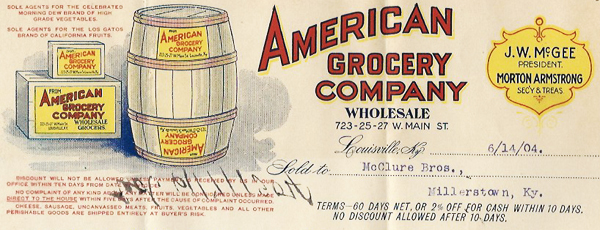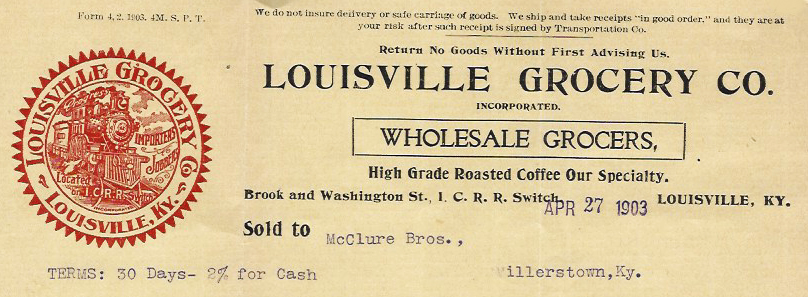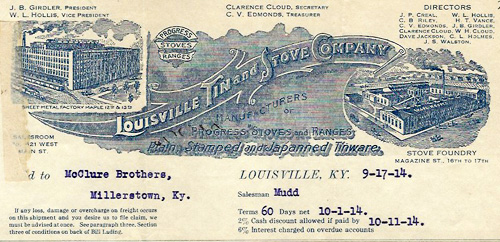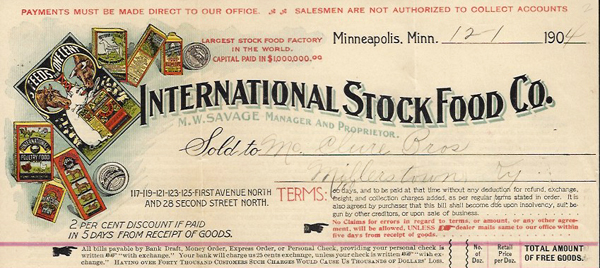As we learned during the pandemic, one of the challenges (and miracles) of grocery stores has been their ability to keep shelves stocked with our favorite foods and provisions, or at least with comparable substitutes. Essential to their mission is the maintenance of supply lines with a corps of manufacturers, wholesalers and distributors.
Early in the twentieth century, the McClure Brothers (Joseph Schuyler and Jonathan “John”), carried a vast inventory of foodstuffs, dry goods, farm equipment, clothing, shoes and toiletries at their general store in the Grayson County, Kentucky community of Millerstown. The store purchased stock from dozens of suppliers; many were in Louisville but some were elsewhere in Kentucky or in neighboring states. The invoices rendered to McClure Brothers tell us something of the thriving consumerism of the region. In addition, their content gives us small history lessons about the businesses, and their striking designs show us the purely aesthetic side of commerce.
There was the American Grocery Company, wholesalers who supplied McClure Brothers with coffee, vanilla, toothbrushes, note paper, nails, sewing needles and more, on payment terms carefully enumerated on the invoice.
There was Charles W. White’s Louisville Coffee Company, which sold McClure Brothers not just several brands of coffee but sausage, cheese, turpentine, cigars, face powder, and castor oil.
There was the K & I Fruit House of Fred Kohlhepp, the son of German immigrants, and Italian immigrant Joseph (Guiseppe) Iula, from whom McClure Brothers also bought potatoes and cabbage.
There was the Louisville Grocery Company, where McClure Brothers obtained candy, chewing gum, peppers and pickles.
There was Italian immigrant Michael DeSopo’s fruit company, providing McClure Brothers with oranges, lemons, bananas and watermelons.
Finally, to prepare all these goodies, there were stoves supplied by the Louisville Tin and Stove Company, a firm in business since 1888.
And, for four-legged customers there was animal feed and medicines from the International Stock Food Company in Minneapolis. Billing itself as the “Largest Stock Food Factory in the World,” the firm covered the reverse of its colorful invoice with fine print explaining its guarantees, offering a free “Spring Canvassing Wagon” for use by agents, and giving tips on “How to Have a Big Sale.” Attractive displays and show cards were important, but the company warned that the “VERY WORST” thing a merchant could do was to discount prices. Looking to protect its brand, the company advised sticking to the regular retail price in order to maintain profits and avoid the impression that the goods were somehow damaged or deficient.
Supplier invoices for the McClure Brothers store are part of the Manuscripts & Folklife Archives of WKU’s Department of Library Special Collections. A finding aid can be downloaded here. For more collections documenting Kentucky merchants, search TopSCHOLAR and KenCat.







